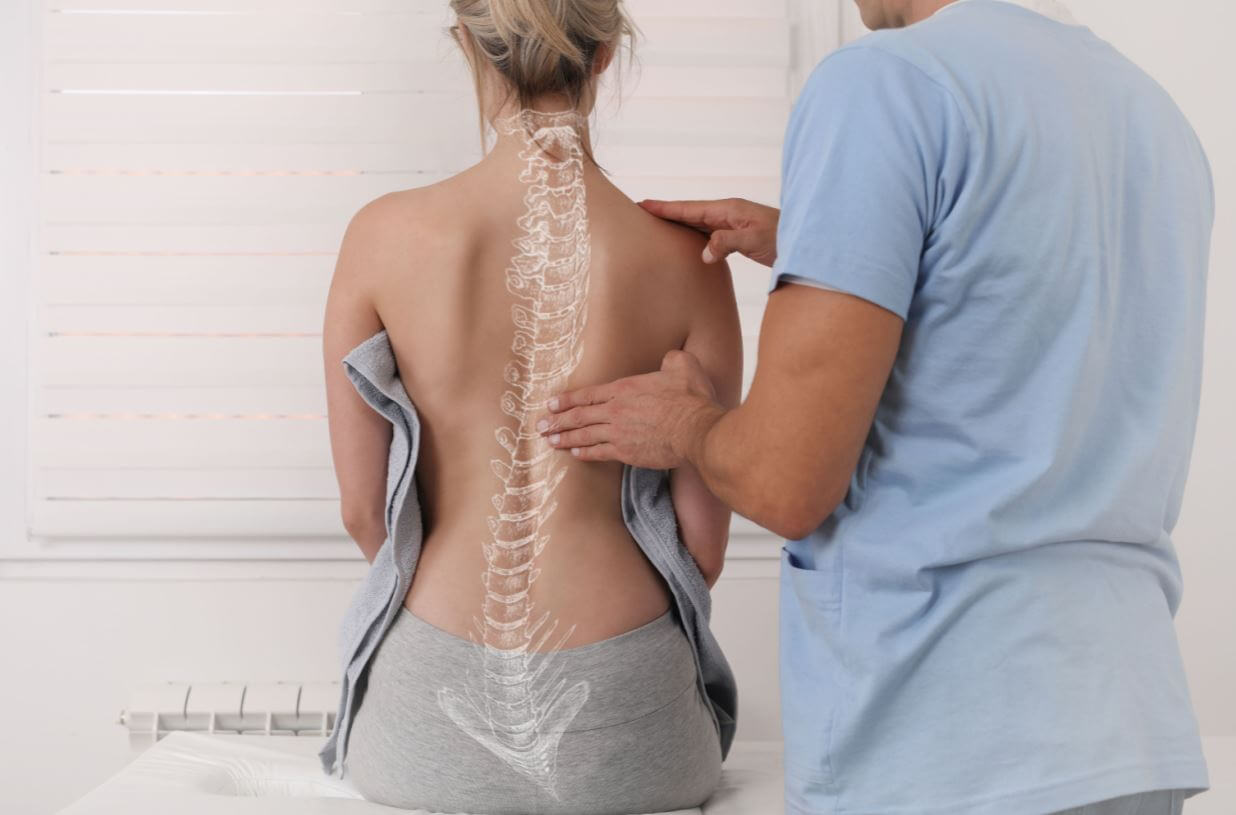What is the Cauda Equina?
Above the waist is where the spinal cord finishes, and below this area is a group of nerve roots called the Cauda Equina (because they look a bit like a horse’s tail). These roots supply nerves to the bowel, bladder and lower limbs and sensation to the skin around the bottom (posterior).
Cauda Equina Syndrome is relatively rare, but the consequences can be devastating if not diagnosed and treated quickly enough. It affects spinal nerves and can be caused or made worse by clinical negligence, in which case the person concerned could be eligible to claim compensation. Call Mooneerams on 0129 2048 3615 to speak with our medical negligence solicitor or contact us using our online form.
This serious spinal condition occurs in between one and three people in every 100,000. It is slightly more prevalent in people with herniated discs, and most Cauda Equina Syndrome (CES) cases occur in those in their sixties. Nevertheless, CES can occur in people of any age.
What causes Cauda Equina Syndrome?
Cauda Equina Syndrome occurs when the Cauda Equina nerves become compressed, most often due to central disc prolapse. However, CES may also be caused by the following:
- A fall or other traumatic blow causing an injury that may or may not be severe.
- Infection of the spine
- Spinal fracture
- Inflammation
- Damage caused during a surgical operation
- Haematomas
- Clinical negligence
The Cauda Equina nerves damage easily.
Cauda Equina Syndrome must be diagnosed, and surgical treatment must be carried out urgently (usually within 48 hours to relieve pressure on the Cauda Equina nerves).
If surgery is not undertaken so quickly, the nerves will probably suffer permanent damage, leaving the victim with irreversible Cauda Equina Syndrome. The outlook for those with long-term CES is poor.
When this happens, the consequences for the person involved can be disastrous, with issues such as neuropathic pain and severe impairment to the functioning of the bladder and bowel, leading to incontinence, sexual dysfunction, and in some cases, paralysis and intense psychiatric issues.
What are the symptoms of Cauda Equina Syndrome?
There are some ‘red flag’ signs of cauda equina syndrome that doctors should be aware of, and these include:
- Lower back pain
- Acute pain
- Bladder or bowel function issues leading to incontinence or retention of urine.
- Inability to pass urine
- Constipation
- Sexual dysfunction
- Numbness in the saddle, legs or perineal (sensitive skin near the genitals, anus and pelvic cavity)
- Bilateral Sciatica
One of the difficulties doctors face when diagnosing Cauda Equina syndrome is that symptoms can slowly develop.
The two types of Cauda Equina syndrome
- Incomplete Cauda Equina syndrome
Partial or incomplete Cauda Equina Syndrome is associated with some loss of bladder control after the nerves become compressed for whatever reason. At this stage, symptoms vary in intensity and may not be present continuously. Saddle and perineal sensory defects are partial.
- Complete Cauda Equina Syndrome
As the name implies, this is when the CES sufferer is no longer in control of their bladder, leading to painless over-retention of the bladder and bowels and equally then to extreme incontinence and soiling.
How is Cauda Equina diagnosed?
When presented with a patient who shows symptoms or possible symptoms of CES, a doctor will provide a prognosis by:
- Reviewing the patient’s medical records and history
- Physical examination,
and arranging for the patient to undergo, as appropriate:
- MRI scan
- CT scan
- Myelogram (Spinal canal X-ray)
How is Cauda Equina treated?
The urgency with which symptoms of CES must be recognised, diagnosed, and referred is very important regarding prognosis.
Surgery to relieve the pressure on the cauda equina nerves is an urgent necessity and, at most, within 48 hours. Even then, surgical intervention is not always entirely successful in treating Cauda Equina.
Even though a patient may refer for diagnosis when symptoms manifest themselves, valuable time could already have been lost from the time of the event causing the nerves to be compressed. Sometimes the surgery gets carried out too late, even when carried out within 48 hours.
Therefore, health professionals must act as soon as they suspect there is even the slightest chance that a patient may have cauda equina syndrome.
What if Cauda Equina syndrome was misdiagnosed or my treatment delayed?
There are several situations where doctors or other medical professionals may be liable to compensate a patient who has developed complete Cauda Equina Syndrome. These are as follows:
- Failure to diagnose a patient soon enough (or at all), missed diagnosis, misdiagnosis or delayed diagnosis of Cauda Equina Syndrome
- Failure to treat a patient soon enough (or at all)
- Carrying out negligent surgery
- Failure to recognise post-surgery complications
It’s important to note that delays in diagnosing Cauda Equina syndrome are not always the fault of medical professionals. Patients who delay getting seen by their GP or doctors at A & E, despite experiencing often acute symptoms, can be responsible for wasting the vital hours within which their condition could have been successfully treated.
However, Mooneerams expert Cauda Equina syndrome partner finds that most claims for cauda equina compensation are brought due to failure by GPs and doctors at A&E to recognise the symptoms of CES.
Since the condition is rare, many non-specialist doctors will not have seen cases of CES before.
However, this does not exonerate them from being found negligent in cases where they have missed symptoms that other reasonable doctors would have acted upon, and their negligence has resulted in the patient suffering an irreversible case of Cauda Equina syndrome.
Kay fact: If you prove healthcare has been negligent, you must still prove you have suffered a loss; in cases of cauda equina, this means that the doctor’s negligence must have caused you to get cauda equina syndrome or have made your condition worse. Lawyers often call this “causation”.
Can I make a Cauda Equina Syndrome compensation claim?
A diagnosis of cauda equina syndrome is devastating, affecting not only you but your family too. It can be a hugely debilitating condition that will have long-term consequences for you both.
Should you get Cauda Equina Syndrome because of the clinical negligence of a doctor and/or other healthcare professionals, you may be entitled to compensation and a considerable amount of compensation in most cases. This reflects not only the severe physical effects of CES but also the amount your lifestyle will change and the adaptations needed to give you back your quality of life.
If you are suffering from Cauda Equina Syndrome and you know or believe it was caused by the negligence of a health care professional, call Mooneerams Solicitors now on 029 2048 3615. We’ll arrange for our expert Cauda Equina Syndrome negligence solicitor to visit you and discuss the details of your case.
If we believe you have a case with reasonable prospects of success, we’ll take on your case if you want us to; but there’ll be no obligation for you to use our services, and we’ll put no pressure on you to do so.
If you decide you want us to handle your claim, you can rest assured that in our clinical negligence partner, you will have the right person on your side.
We will arrange for independent medical experts to review your medical history and advise on whether they believe the doctors treating you were negligent. They will also suggest what should have been done differently and to what extent the clinical negligence has caused or made your condition worse.
What do you get by way of compensation for Cauda Equina claims?
The first part of pursuing a successful cauda equina compensation claim is establishing liability for medical negligence against the healthcare professionals involved and the NHS Trust for whom they work.
Once that is achieved, you can rest assured that you will get compensation. You can expect to receive damages, to compensate you for, or to cover the cost of :
- Pain suffering and loss of amenity – the physical and psychological injuries you have suffered
- Past and future loss of earnings
- Loss of employment prospects
- Employing a case manager to work with you and address your needs
- Regular specialist physiotherapy
- Supervised gym and sports sessions to improve mobility
- Employing a support worker to support you whilst on trips out of the home (many people with CES become isolated for fear of being incontinent whilst away from home).
- Adapting your current accommodation or purchasing a new home that is adapted to meet your needs.
- Buying specialist medical aids for use at home
The costs of rehabilitation and other special requirements that will make up each individual’s Cauda Equina claim will vary depending on an individual’s circumstances.
Often with delayed diagnosis of CES, some symptoms of CES would have been suffered, in any event, even with correct treatment. It is therefore very important to use a specialist solicitor with experience in these types of claim, who will be able to investigate the degree the symptoms have been worsened by the delay.
Can I make a No Win, No Fee Cauda Equina negligence claim?
Our Cauda Equina solicitor will handle your cauda equina syndrome claim on a no win no fee basis, if possible. The main benefit of using a No Win No Fee arrangement is that you will not have any legal fees to pay if you do not win your claim.
Call Mooneerams solicitors on 029 2048 3615 to arrange a free initial consultation with one of our clinical negligence experts.





















